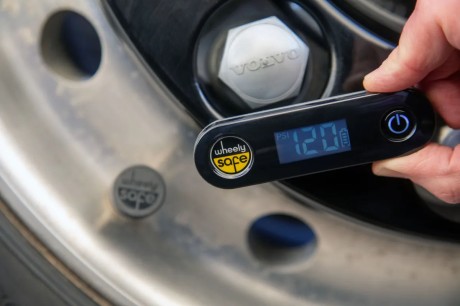The post-Brexit transition from EU Vehicle Type Approval (VTA) to the pending GB Approval Scheme has introduced a complex and challenging environment for manufacturers and operators in the UK commercial vehicle industry. This article explores the key challenges faced by these stakeholders, highlighting the impact of regulatory divergence and the implications for operators operating in different regions within the UK.
Regulatory Divergence and GSR2: EU vs. UK NSSTA and IVA
Post-Brexit, the regulatory landscape for vehicle type approval has shifted, with many discussions centring around GSR2 (General Safety Regulation version 2). This regulation encompasses various measures including (among others) Reg 141 (Tyre Pressure Monitoring System). While the EU has swiftly adopted these changes, the UK has yet to universally mandate them. This divergence creates compliance challenges for both manufacturers and operators.
The GB Approval Scheme
Further complicating matters, the GB Approval Scheme, which will replace EU VTA, has experienced some delays. The resulting transitional period has left the UK in a regulatory limbo.
Amidst these challenges, the Vehicle Certification Authority (VCA), the sole body responsible for implementing type approval in the UK, is facing capacity constraints. This has hindered the timely and accurate dissemination of information about pending type approval regulations.
Operators in the Crosshairs
For operators, the impact of these changes is not insignificant. Operators in Europe face the inevitable adoption of new EU specifications, which may lead to increased manufacturing costs as companies incorporate features required for compliance. The timing of the GB type approval scheme and the specific EU regulations that will be adopted remain unclear, adding uncertainty for operators.
Regional Variances and Approval Codes: Navigating Compliance in the UK
Within the UK, operators face distinct challenges depending on their geographical operations. The approval codes e11 (EU), g11 (England, Wales, and Scotland), and n11 (Northern Ireland) highlight these regional variances.
England, Wales, and Scotland (g11): Operators serving in these regions are subject to the g11 approval code, which introduces a new era of compliance standards. While some GSR2 regulations may not be immediately mandated, the delayed GB Approval Scheme adds uncertainty about their eventual applicability.
Northern Ireland (n11): Northern Ireland, operating under the Northern Ireland Protocol, remains under the EU VTA framework and newer regulations must become mandated from July 2024 (n11), adding urgency for operators to align with evolving standards to maintain compliance.
While manufacturers bear the primary responsibility for type approval compliance, operators should be aware of how evolving standards may affect specifications and associated costs in the future.
Summary: Navigating Changes in UK Type Approval Post-Brexit
The evolving landscape of UK Type Approval post-Brexit introduces nuanced challenges for manufacturers and operators, particularly those involved in NSSTA and IVA.
Regulatory Flexibility for NSSTA and IVA: Some newer regulations are not mandatory for NSSTA and IVA, providing a window for manufacturers to avoid immediate upgrades to comply.
Potential Cost Implications: The GB Approval Scheme adds a layer of uncertainty. Manufacturers may need to inform customers of potential cost increases if the scheme comes online during the lead time or build time of a new order. This could arise from the need to add features for compliance with evolving regulations.
Early Adoption Consideration: Notable benefits are introduced by many of these new regulations. Operators may find it worthwhile to consider early adoption, anticipating potential enhancements in safety or efficiency.
This dynamic landscape emphasises the importance of staying informed, as the timing of regulatory changes remain critical factors for both manufacturers and operators in the commercial vehicle industry.
Industry Collaboration: Don-Bur's Proactive Engagement
Don-Bur is proactively collaborating with the Vehicle Certification Authority (VCA) and the Society of Motor Manufacturers and Traders (SMMT) to provide comprehensive support and guidance to its customers. Customers can rest assured that they will receive continuous updates throughout this dynamic period.
We’d love to hear from you – get in touch today!





